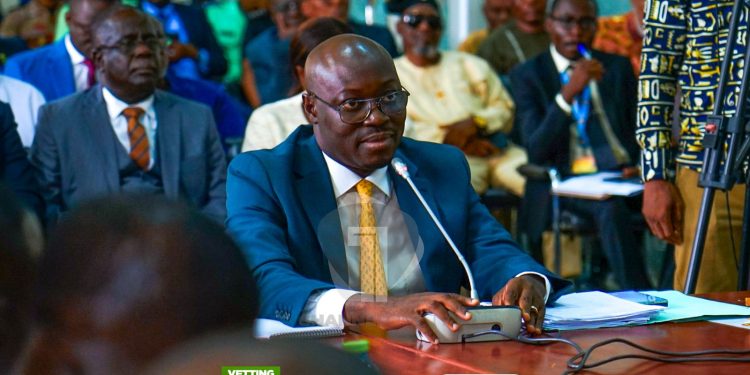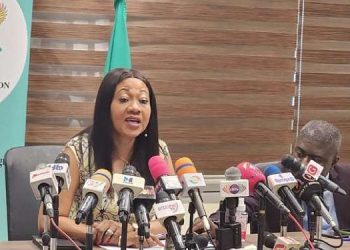Accra, the vibrant capital of Ghana, has once again been hit by devastating floods, leaving a trail of destruction and displacement in its wake. The recent heavy rainfall has exposed the city’s vulnerability to flooding, highlighting the need for urgent action to mitigate this recurring issue. As we navigate this challenging situation, it’s essential to explore strategies to curb flooding and examine how the government can support our efforts.
- Drainage Infrastructure Upgrade:
Accra’s drainage system is inadequate, contributing significantly to the flooding problem. The government should prioritize upgrading and expanding the drainage infrastructure, including constructing new channels, culverts, and stormwater management systems. This will help efficiently redirect excess water, reducing the burden on existing infrastructure. - Urban Planning and Development:
Haphazard development and poor urban planning exacerbate flooding in Accra. The government should enforce stricter building regulations, ensuring new constructions are flood-resistant and don’t encroach on waterways. Green spaces and parks can also help absorb excess water, reducing runoff. - Flood Risk Mapping and Early Warning Systems:
Identifying high-risk flood areas and implementing early warning systems can save lives and property. The government should invest in flood risk mapping, using data and technology to predict and prepare for flooding events. Early warning systems can alert residents, enabling them to evacuate or take necessary precautions. - Community Engagement and Education:
Raising awareness and engaging with local communities is crucial in flood mitigation. The government should launch public education campaigns, educating residents on flood safety, preparedness, and response. Community-led initiatives, such as clean-up programs and flood resilience groups, can foster a sense of ownership and collective responsibility. - Collaboration and Partnerships:
Flooding is a complex issue requiring a multi-stakeholder approach. The government should collaborate with local authorities, NGOs, private sector entities, and international organizations to share expertise, resources, and funding. Partnerships can facilitate knowledge transfer, innovative solutions, and scalable projects. - Climate Change Adaptation:
Climate change is exacerbating flooding in Accra, with rising temperatures and changing rainfall patterns. The government should integrate climate change adaptation measures into flood mitigation strategies, focusing on resilience and sustainability. This includes promoting green infrastructure, renewable energy, and eco-friendly practices. - Emergency Preparedness and Response:
Effective emergency response systems can minimize damage and save lives during flooding events. The government should strengthen emergency services, ensuring rapid response times, adequate equipment, and trained personnel. Evacuation plans, shelters, and provision of essential supplies can also support affected communities.
In conclusion, curbing flooding in Accra requires a comprehensive approach, involving government support, community engagement, and innovative strategies. By prioritizing drainage infrastructure upgrades, urban planning, flood risk mapping, community education, collaboration, climate change adaptation, and emergency preparedness, we can build a more resilient city, protecting lives and property for generations to come. The government must take a proactive role in addressing this critical issue, working hand-in-hand with citizens to create a safer, more sustainable Accra.
























































![[FREE FREE MONEY] Predict and Win a Guaranteed GH¢200 From Us EVERY WEEK](https://wordpress.ghanatalksradio.com/wp-content/uploads/2022/02/Predict-and-Win-Final-09-03-2021-218x150.jpg)
![[Predict & Win – 8th/Oct.] WIN A Guaranteed ¢200 From Us This Week](https://wordpress.ghanatalksradio.com/wp-content/uploads/2021/10/maxresdefault-16-218x150.jpg)
![[Predict & Win – 2nd] WIN A Guaranteed ¢200 From Us This Week](https://wordpress.ghanatalksradio.com/wp-content/uploads/2021/09/maxresdefault-50-218x150.jpg)
![[Predict & Win – 25th] WIN A Guaranteed ¢200 From Us This Week](https://wordpress.ghanatalksradio.com/wp-content/uploads/2021/09/maxresdefault-36-218x150.jpg)
![[Predict & Win – 18th] WIN A Guaranteed ¢200 From Us This Week](https://wordpress.ghanatalksradio.com/wp-content/uploads/2021/09/maxresdefault-23-218x150.jpg)










![[National cathedral] See full list of churches that have contributed since 2018](https://wordpress.ghanatalksradio.com/wp-content/uploads/2020/09/Ghana-National-Cathedral-GhanaTalksRadio-100x70.jpg)


